Hey all — scary month, eh? Yikes.
The Met Museum was closed the day after the presidential election, as it is every Wednesday. Met Wednesdays are the perk to end all job perks — I’ll often take an hour away from my desk to stroll the silent galleries, pausing by the Monets or Vermeers or O’Keeffes to remember just how privileged my routine is.
For The Met’s Department of Live Arts (my employer, for those new here), those empty days often double as uninterrupted rehearsal time for the weekend’s public performances. On that fateful November 6 morning, violinist Johnny Gandelsman (the 2024 MacArthur Genius cohort’s sole musician) prepared to present This Is America, an expansive anthology he’d commissioned in response to the fraught events and emotions of 2020-21’s United States. Johnny would occupy the American Wing’s galleries for his hourly installations barely 48 hours after the election results were confirmed, and win or lose, we knew the series’ heavy subject matter — COVID isolation, George Floyd’s murder, the 2020 election and pursuant insurrection — would magnify whatever feelings lingered.
When I arrived to the touristless Museum, I followed the sound of Johnny’s violin to a gallery of kaleidoscopic colored-pencil designs by Native American artist Mary Sully. As I greeted my colleagues, I noticed I wasn’t the only one clad in black. We all had bags under our eyes. The customary rounds of “How are you?” begot only grunts and shrugs, our voices sullen and beleaguered, weak, shocked, but not surprised.
Johnny has been a friend of mine since MetLiveArts presented his monumental Bach traversal last year at The Met Cloisters, now available in its entirety on YouTube. More recently, I’d interviewed him at length about This Is America for my first contribution to The Met’s Perspectives article series. That morning, I approached him last in my line of hellos, and we exchanged a much-needed hug. Perhaps it’s TMI to tell you that Johnny gives the best hugs — warm, caring, comforting, restorative. And perhaps it’s unprofessional to admit that I nearly broke down and sobbed in Johnny’s arms — but this election was another shit feather in the shit cap of my shit year, and past a certain point, our emotional dams are only so strong.
A few minutes later, Johnny and composer-singer-songwriter-cellist Marika Hughes launched into a sound check for Hughes’ With Love From J, the nouveau-folk song whose lyrics opened both my and The New York Times’ recent interviews. As the two began to croon through the song’s positive affirmations, light began to return to the pit in my stomach.
That pit opened and closed all throughout the weekend. Kinan Azmeh’s Sahra be Wyckoff (A Party at Wyckoff for All), inspired by the Bushwick loft in which Johnny once hosted jam sessions, projected the contagious joy of gathering in community. Juxtaposed with Emanuel Leutze’s 21-foot-wide painting of George Washington’s heroic Delaware River crossing, the January 6th insurrection sound samples woven into Micaela Tobin and Rhea Fowler’s A City Upon A Hill? struck like daggers. As Johnny traversed the American Wing’s massive, yet virtually unvisited Visible Storage floor, he began with a traditional Irish lament, limpid and pensive, before moving to Rhiannon Giddens’ New to the Session, an upbeat, head-bobbing reel.
When Johnny and I chatted about This Is America over Zoom in mid-October, I asked him one of the questions that plagued me throughout the pandemic: In times when people are dying and the world is crumbling, how do we make our art matter?
It’s a question that’s cropped up anew in the last year. As we helplessly watch the U.S. abet atrocities abroad and consign itself to fascism at home…who cares which Brahms recordings have the creamiest strings or the dreamiest brass? Like, why the hell am I here?
In 2020, that question stopped my output for a while, but I’ve now come to terms with the fact that nothing I write here, like, matters. And I think that’s okay. If I can’t solve the world’s horrors, at least I can try to distract myself (and hopefully, you).
I spent the few days before the election on a blissful work-vacation to Boston. My stated business was an interview for Kronos Quartet’s vast 50th-anniversary oral history project, in which composer Alexandra Du Bois and I chatted at length about the quartet’s past, present, and future, and how they inspired her ground-up overhaul of the Longy School of Music of Bard College’s theory curriculums. But in the U.S.’s consummate college town and supposed historical performance capital, I had no problem turning an overnight business trip into a restorative long weekend full of friends, food, and music — more often than not, at the same time.
I owe the Boston-based Arneis Quartet for my favorite bites of the weekend. I can’t quite explain the sequence of events that brought me to their violist’s gorgeous South End apartment, slurping pho made by composer Vân-Ánh Vanessa Võ, but it was one of my favorite journalistic pursuits of 2024. Võ catered the meal after playing a vigorous ninety-minute solo-and-chamber set in the one-room art gallery downstairs, a sneak peek at her year in residence with the Arneis’s Kaisahan (Tagalog for “oneness”) initiative for cross-cultural programming. The residency kicks off in earnest this April, when the quartet pairs Bartok’s Sixth Quartet with solo works and group arrangements for Võ’s đàn tranh, a zither cousin of the Chinese guzheng and Korean gayageyum, and đàn bầu, a monochord instrument whose pitch adjusts with an animal-horn “whammy bar.” (At the gallery performance, the đàn bầu’s sly smears gave extra sleaze to the “Cold Song” from Purcell’s King Arthur.)
Võ’s pho aligned with the style of her northern hometown of Hanoi, comparatively underrepresented in U.S. restaurants. The rice noodles were wider and slipperier than the angel-hair of Saigon. The raw beef plumped in a ginger marinade before its brief blanch. The broth, aromatic with cinnamon and anise, gained its zippy brightness from garlic vinegar rather than lime juice. It was a most soothing bowl for the first earnestly cold weekend of the year — and special nod to the Arneis violist’s husband, who received a crash course in Vietnamese sous-cheffery that day.
I’d passed the previous night at an East Coast premiere from the Cambridge Chamber Ensemble, an indie opera company which performs in a decommissioned courthouse near MIT. Labyrinth, a kooky one-act TV opera that Gian Carlo Menotti wrote on commission from NBC, is Ionesco-ish in its brazen, willful absurdism, with a fanciful cast of characters that channels The Little Prince’s motley crew. Perhaps it lacks the holiday charm and happy ending that gives Menotti’s hit Amahl and the Night Visitors its staying power, but it’s an entertaining fifty minutes despite its post-premiere fade into obscurity.
The company made a strong case for the ugly duckling “operatic riddle,” their production splayed artistically onto their historic theater’s tri-level stage. Menotti’s speechy score isn’t designed to show off its voices — most of the music’s angles and jabs emanated from the offstage orchestra, conducted by an invisible Stephanie Beatrice. As a geriatric chess player, tenor Patrick Bessenbacher stretched his comedic timing to its glacial limit, the audience laughing timidly as he pondered his next move. And of course, every opera needs at least one happenstance friend encounter: my friend Courtney Elvira, with whom I sipped alcoholic slushies while on a 2021 opera festival contract in Savannah, GA, played a harried businesswoman with the distant, demented smile of the Cheshire Cat.
Vân-Ánh Võ’s per-pho-rmance (sorry) sort of ruined me for that evening’s concerto-a-thon with the Venice Baroque Orchestra. Violinist Chouchane Siranossian’s left hand was mesmerizingly precise through the blistering runs of Vivaldi’s Il grosso mogul, but I would have traded all of Vivaldi and Locatelli’s pompous fireworks for more samples of Francesco Maria Veracini’s chromatic sonatas, which pared the orchestra to its three finest members: Siranossian, principal cellist Irene Liebau, and harpsichordist-conductor Andrea Marcon.
I rounded out my concert weekend at the Isabella Stewart Gardner Museum’s four-tiered concert-hall-in-the-round with my old friends (and former Met Museum Quartet in Residence) Catalyst Quartet, whose program contrasted music of the French golden-age Belle Époque with World War I’s horrors. A set of wartime prayers by André Caplet, performed devoutly but fervently by the quartet with soprano Kara Dugan and harpist Charles Overton, was most breathtaking; though less compelling in its narrative arc, the performance’s centerpiece, a 1917-18 piano quintet by organist Louis Vierne (featuring pianist and From The Top host Peter Dugan), showed the composer’s hair-raising facility with extended chords. (That’s a hallmark of 20th-century French organ music — Marcel Dupré and Jean Langlais continued the lineage.)
Between shows, I spent every waking moment with friends. I caught up with my former stand partners from high school (indie musician with a piano trio side hustle), music camp (works in an MIT lab), and college (newest member of a fabulous young quartet — I saw them shred Schubert’s Death and the Maiden in NYC last week). From a friend who teaches musical theatre at Boston University, I got a lesson in Kander & Ebb and some hot Cambridge choir gossip as we sipped spiked Capri-Suns with light-up ice cubes. With the conductor who led my only enjoyable assistant-conducting gig, I discussed Lee Hoiby and higher education — he’s now changing lives as the principal conductor of Boston Conservatory’s opera program. The Boston Globe’s venerable critic A.Z. Madonna and I commiserated about deadlines, overwork, and burnout, par for our stressful course; Harry Rose, parterre box’s new editor, laid out his plans for the site over the din of a live band in a Cape Verdean restaurant in Dorchester. (The Portuguese-inflected island cuisine is the only one I can get in Boston but not NYC — triumphs included beef liver in a dark, umami sludge and shrimp-and-potato Mozambique with a spicy white wine sauce.) Even my brother, in town to visit his girlfriend, made time for a brunch of mediocre soup dumplings.
My happiest moments passed in friends’ apartments, sightreading and chatting with a mug of tea, or something stronger — not all grad students own wine glasses. Perhaps I should spend more time doing that back home?

There’s more I should write about. Lately, I’ve been finding a lot of joy in Romantic orchestral music, and after seeing the Sibelius and Strauss with the New York Philharmonic, Bruckner with the Berlin Philharmonic (featuring an old college quartet-mate in their viola section’s ranks, so surreal), and Schoenberg and Mahler with the Royal Concertgebouw Orchestra, I feel a nerdy orchestration deep-dive brewing.
And I’ve been itching to write some meandering album reviews. Amidst my craving for beefy Romance, I’ve found myself trying to satisfy one particular rubric over and over: German Romantic, with the cheek and humor of Strauss, but not rambling like Mahler or uber-serious like Bruckner. While waiting on a 50-year-old trolley car in Boston’s Mattapan district, I discovered the empirical correct answer: Schoenberg’s pre-twelve-tone Pelléas et Mélisande, which I enjoyed in a colorful new recording from Paavo Järvi and the Frankfurt Radio Symphony Orchestra. Bartók’s impressionistic pantomime-ballet The Wooden Prince (as told by Cristian Măcelaru and the WDR Sinfonieorchester) was also a great option.
Oh, and then there was Lise Davidsen’s MET role debut as Tosca. To paraphrase a mentor’s deft quip: “Didn’t that just suck the most?” (I prefer Davidsen in German opera — cue plug for her star-studded limited run in Beethoven’s Fidelio this March.)
Who knows if I’ll actually get any of that on the page in this crazy month — two Messiahs this weekend (no solos for me, thank god — if you’ve made it this far, feel free to use code choirfriends24 for $10 tickets!), plus work obligations and a mid-month article for Chamber Music mag. But these past few days, I prioritized spending time with the people I love over writing, so for now, I’m content being out of time.
As a low-effort filler, here’s a photo dump from this weekend’s food crawl through Flushing’s Chinatown, featuring two of my best friends in the whole wide world.
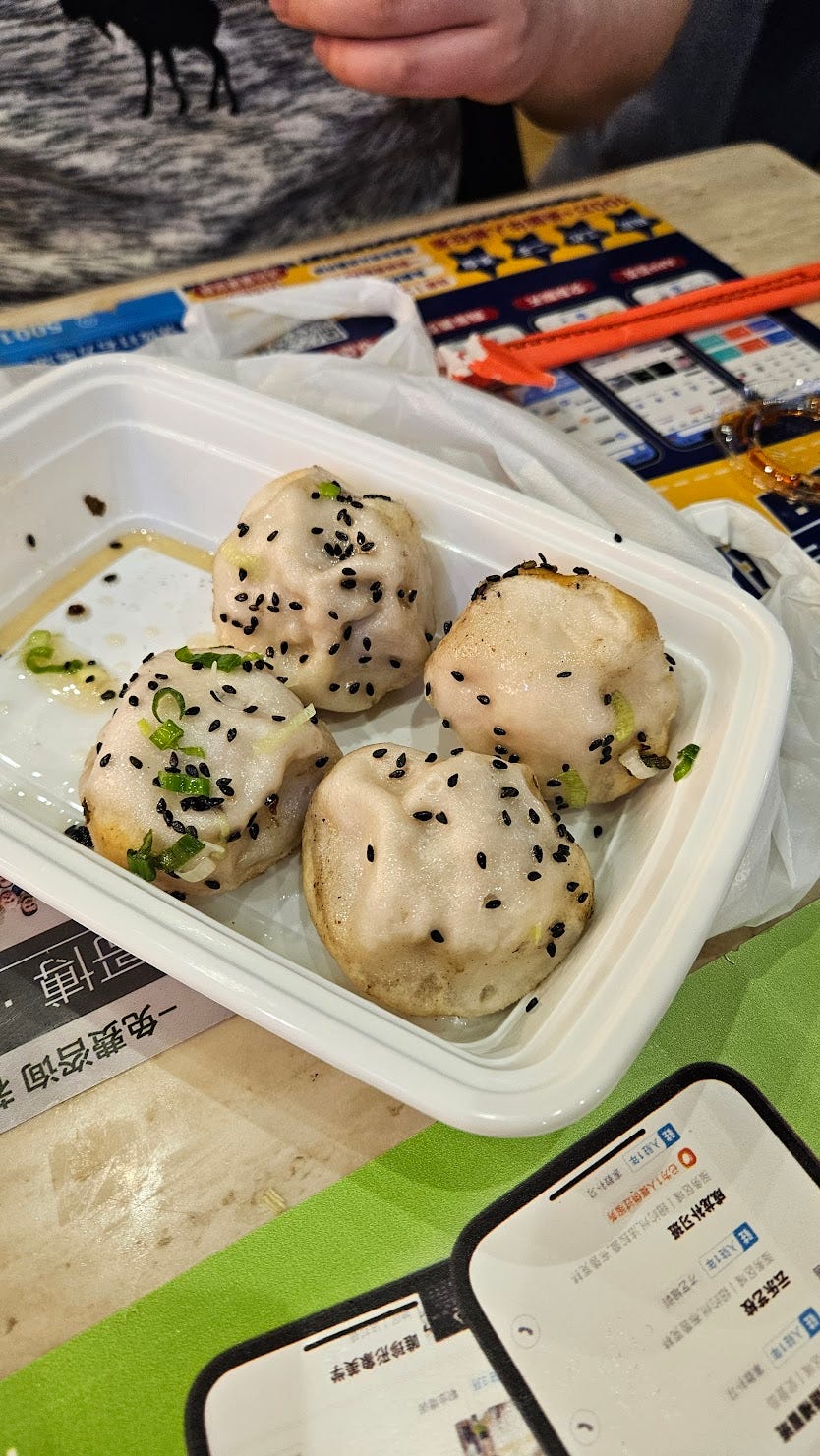

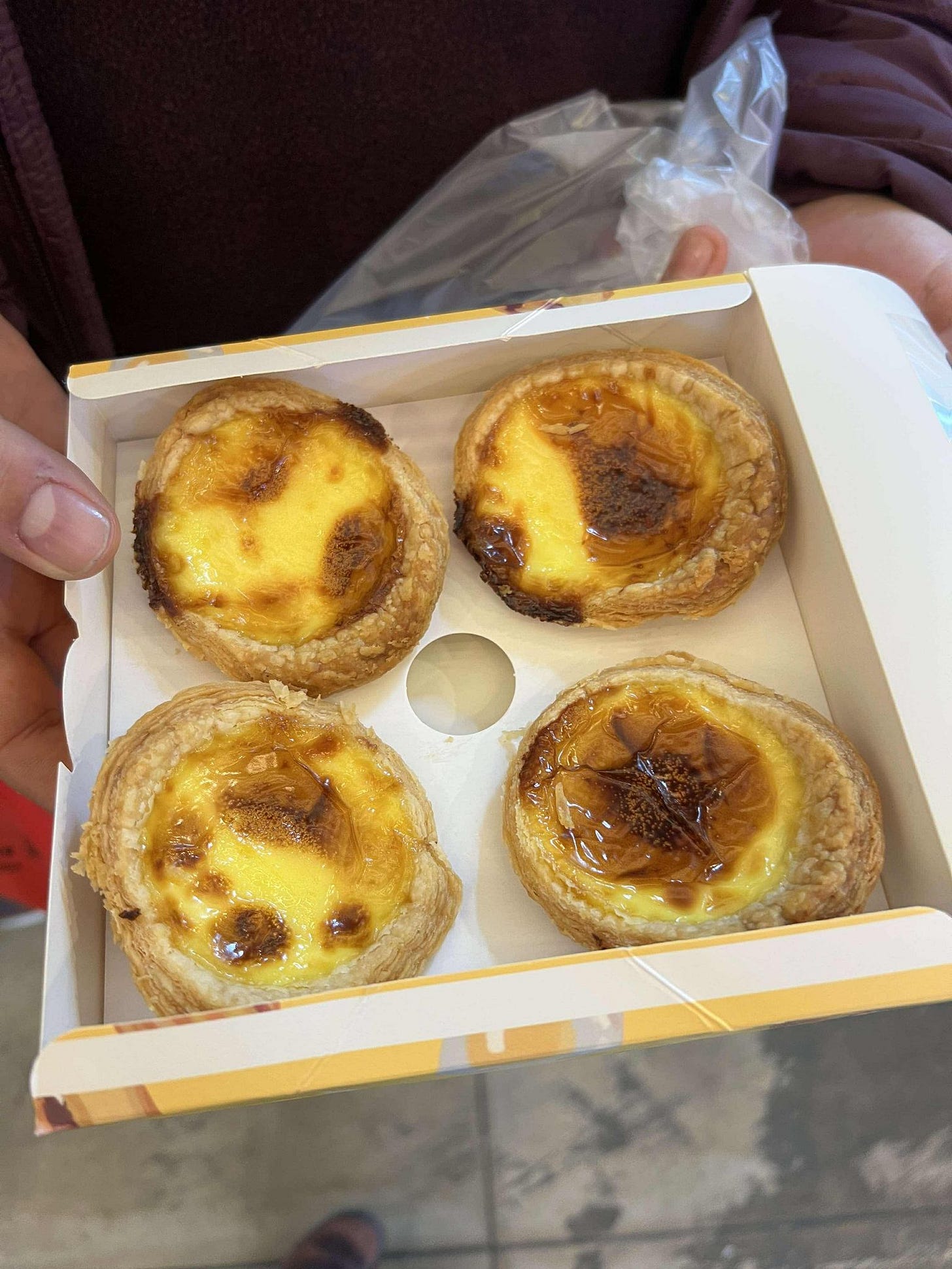
What’s On
A Golden Wire: Bach’s Library (FREE, REGISTRATION REQUIRED)
Tue Dec 3 | St. Paul’s Chapel, Columbia University
Fretwork & Iestyn Davies, countertenor
Tue Dec 3 | Carnegie Hall (Zankel)
TAK Ensemble: HOLDING
Tue Dec 3 | DiMenna Center
Boston Early Music Festival Vocal & Chamber Ensembles
Tue Dec 3 | Morgan Library
Met Opera: Die Frau ohne Schatten
Wed Dec 4, Sat Dec 7 (matinee),
Tue Dec 10, Sat Dec 14, Thu Dec 19 | Met Opera House
Wadada Leo Smith & Amina Claudine Myers: Central Park’s Mosaics of Reservoir, Lake, Paths and Gardens
Wed Dec 4 | Roulette Intermedium (Brooklyn)
Miller Theatre presents The Tallis Scholars
Thu Dec 5 | Church of St. Mary the Virgin
Czech Philharmonic
Thu Dec 5 (other programs Dec 3 & 4) | Carnegie Hall (Stern/Perelman)
Fifth Avenue Presbyterian Choir: Handel’s Messiah
Fri Dec 6 & Sat Dec 7 | Fifth Avenue Presbyterian Church
Come see me sing if you dare! Use code choirfriends24 for $10 tix.
Patricia Brennan’s Suite of the Near and Far
Fri Dec 6 & Sat Dec 7 (two sets) | The Jazz Gallery
Prague Philharmonic Choir
Fri Dec 6 | Carnegie Hall (Zankel)
Trio Mediæval & Catalina Vicens, organetto
Fri Dec 6 | Carnegie Hall (Weill)
Pavel Haas Quartet
Sat Dec 7 | Carnegie Hall (Weill)
Adam Tendler’s Inheritances Revisited: Album Release (FREE)
Sat Dec 7 | David Rubinstein Atrium
Parlando & JP Jofre, bandoneon
Sun Dec 8 (matinee) | Merkin Hall, Kaufman Center
Loadbang: Tombeau (FREE, REGISTRATION REQUIRED)
Sun Dec 8 | St. Paul’s Chapel, Columbia University
Sara Serpa: Encounters and Collisions Album Release
Mon Dec 9 | Roulette Intermedium (Brooklyn)
The Stone Residencies: Ikue Mori
Wed Dec 11-Sat Dec 14 | The Stone at The New School
Donnacha Dennehy & Alarm Will Sound: Land of Winter
Wed Dec 11 & Thu Dec 12 | Irish Arts Center
Kalia Vandever Quartet: In My Dream House
Wed Dec 11 | Roulette Intermedium (Brooklyn)
Opera Praktikos: There Will Be Cake!
Thu Dec 12-Sat Dec 14 (all matinee) | Asylum NYC
Barbara Hannigan, soprano & Bertrand Chamayou, piano
Thu Dec 12 | Park Avenue Armory
Asmik Grigorian, soprano & Lukas Geniušas, piano
Thu Dec 12 | Carnegie Hall (Zankel)
Jeremy Denk
Thu Dec 12 | 92nd Street Y
Cécile McLorin Salvant, vocals & Sullivan Fortner, piano
Fri Dec 13 | Carnegie Hall (Zankel)
Works & Process presents Isaac Mizrahi & Nico Muhly: Third Bird
Sat Dec 14 (two matinee performances) | Guggenheim Museum
Silentwoods Collective presents Uptown415
Sat Dec 14 | Dear Mama Café
Music Before 1800: Letters to a Young Poet
Sun Dec 15 (matinee) | NY Society for Ethical Culture
Sheku Kanneh-Mason, cello & Isata Kanneh-Mason, piano
Sun Dec 15 (matinee) | Carnegie Hall (Stern/Perelman)
Parker Ramsay: Goldberg Variations
Mon Dec 16 | Zürcher Gallery
Toomai String Quartet: Passos Brasileiros
Mon Dec 16 | DiMenna Center
S.E.M. Ensemble
Wed Dec 18 | Paula Cooper Gallery
Ethan Iverson Sextet
Sat Dec 21 (two sets) | The Jazz Gallery
Clarion Choir: New Year’s Concerts
Tue Dec 31 & Wed Jan 1 (early eve) | Church of the Resurrection






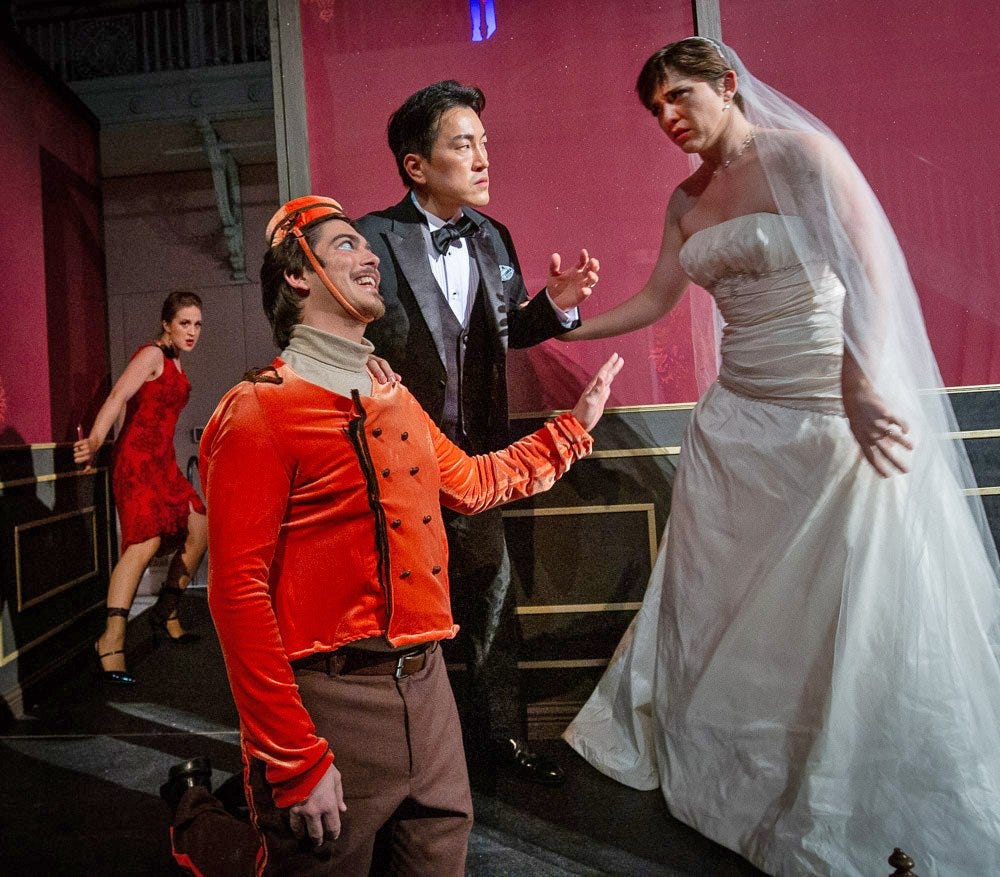

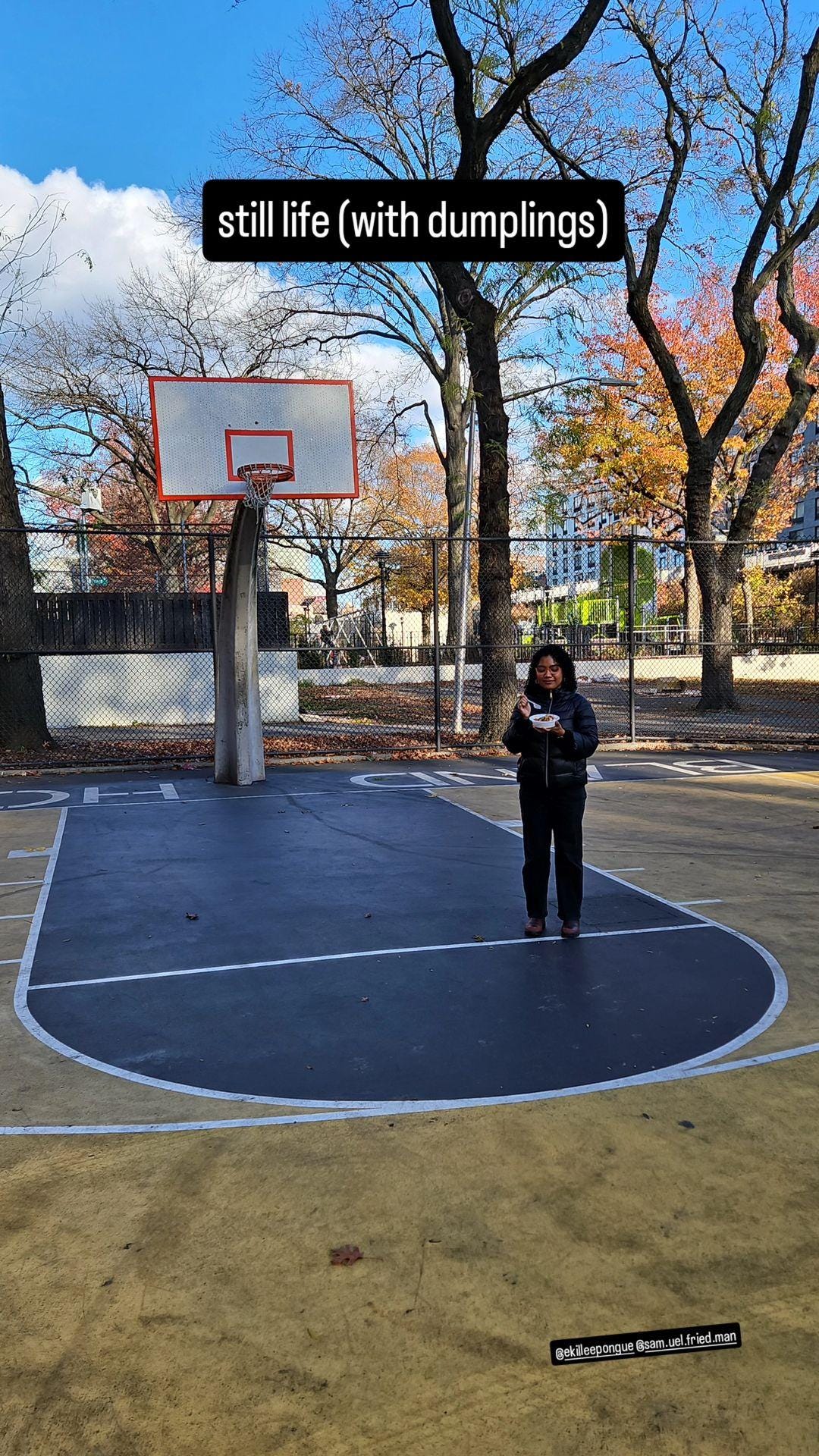
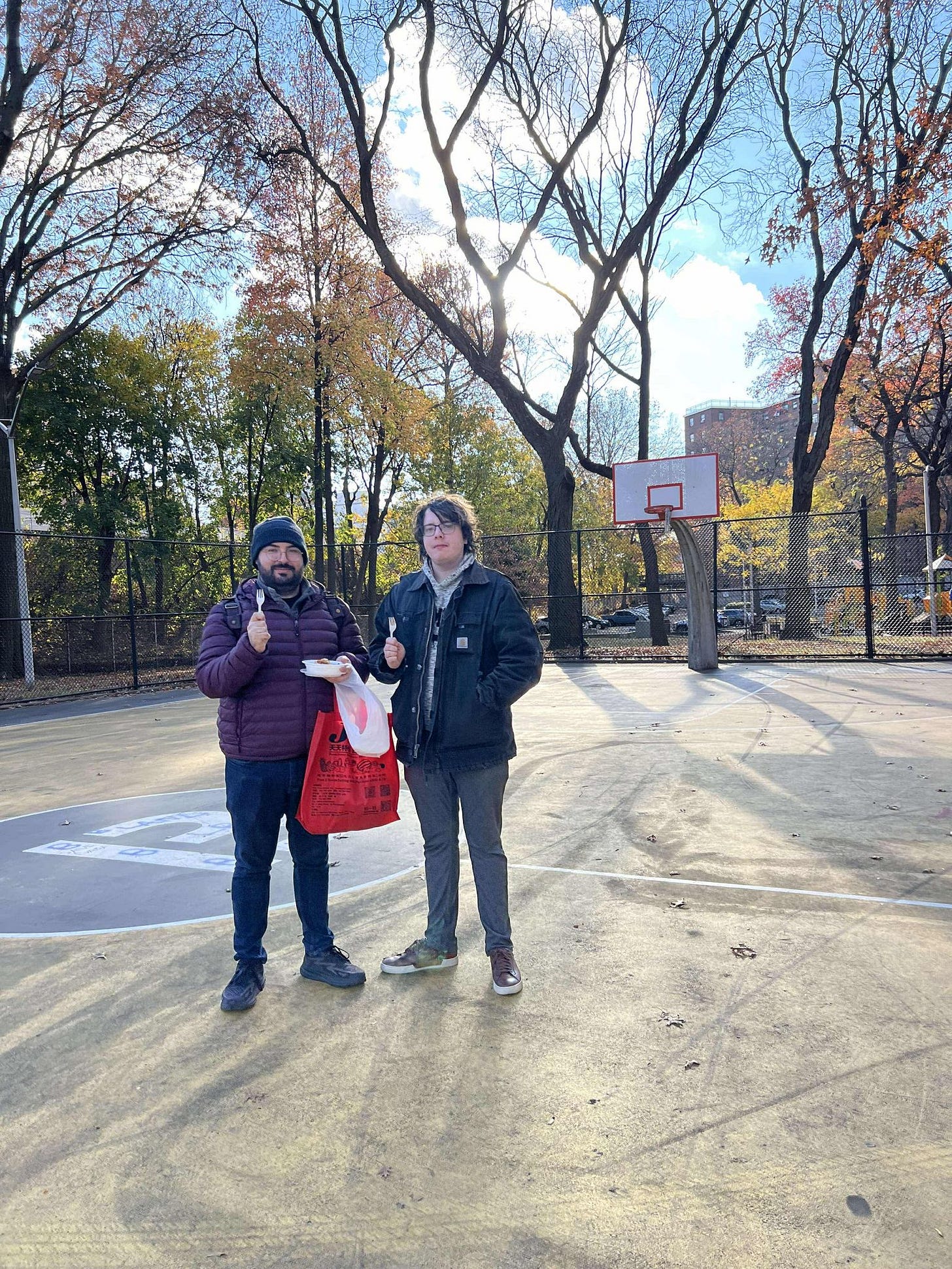


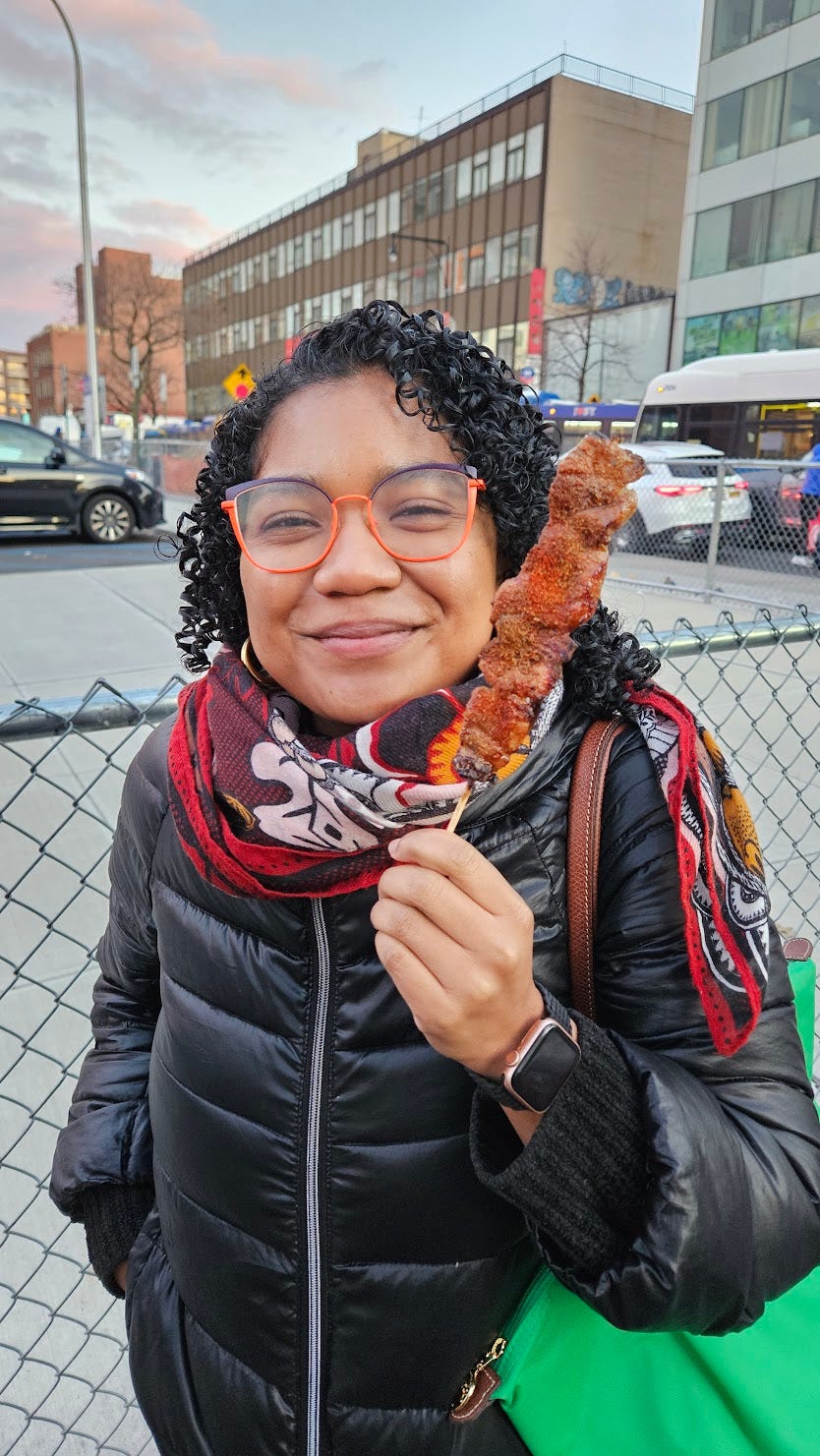
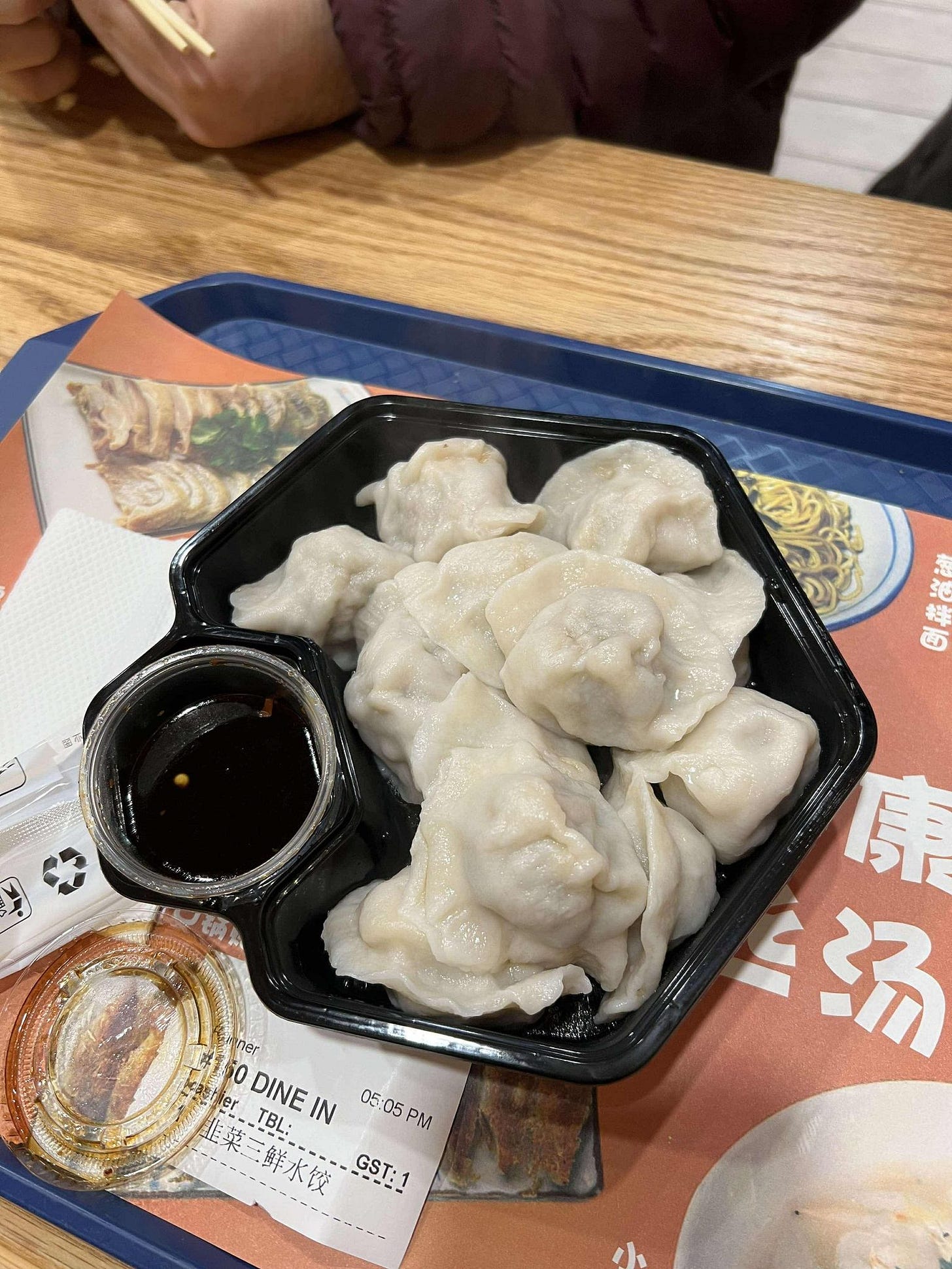
Your writing on here matters. Trust.
Also, Mahler, "meandering"? I'd like to have a word with you about that!
Thanks for the delectable journey… and relieved to know I didn't miss much in not getting to the Davidsen 'Tosca,' which I'd longed to hear but never managed to hit the lottery jackpot.